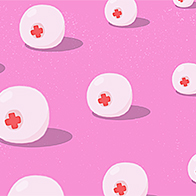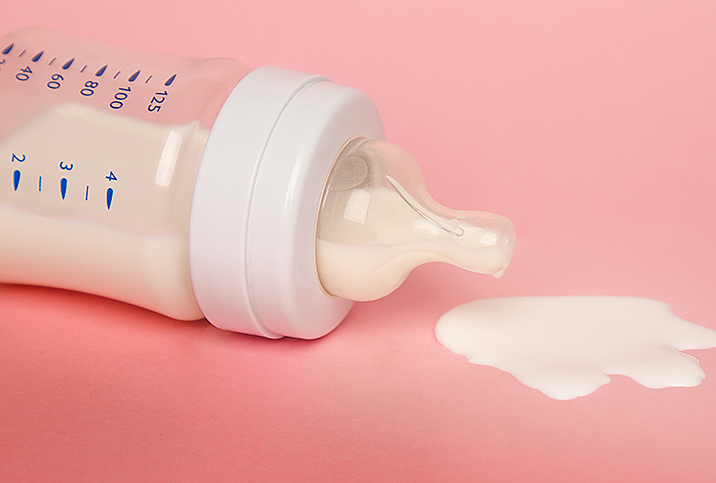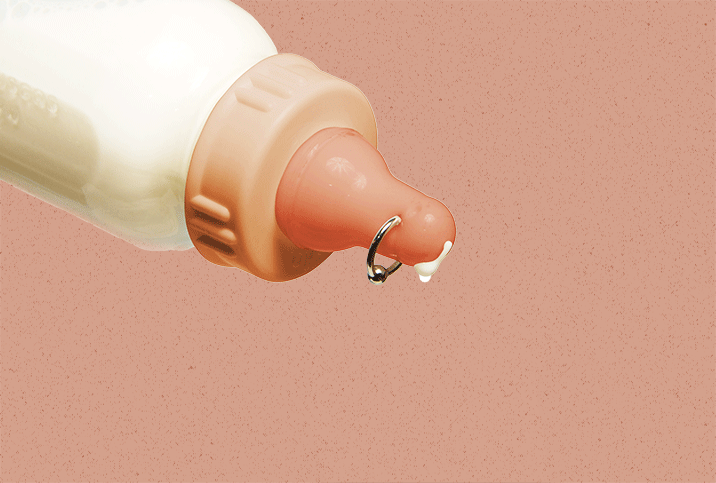The Benefits of Colostrum for Your Baby

Colostrum, a gold-colored liquid produced by all mammals—including humans—comes out of the breasts just before and after a baby is born, prior to being replaced with regular breast milk.
"Colostrum is the perfect first food for babies," explained Sheila Janakos, a lactation consultant for Healthy Horizons, "Only 1 or 2 teaspoons [are] needed to benefit a newborn."
"It is a newborn's first protection from illnesses and allergies," Janakos continued. "It is concentrated and made up of the perfect amount of proteins, milk sugars, fats, nutrients and vitamins that are needed to help the baby's vital organs grow and to prevent low blood sugar."
Why is colostrum so important?
One of the most important benefits of colostrum is the high concentration of antibodies and white blood cells that are packed into it, which supplement a baby's immune system. The womb is a sterile environment, and when a baby is born, they are exposed to new germs and bacteria they haven't come in contact with before. Colostrum provides babies with what their bodies need to adjust to the outside world.
Samantha Radford, a Ph.D. researcher in public health, explained that colostrum can also help jump-start a baby's digestive system "because it helps build up the gut's lining, provide immunity from disease, and clear the bowels of meconium (the sticky, black feces that babies store up in the womb)."
The reason colostrum coats the baby's digestive system is to help germs pass through without harming the baby and to prevent any internal inflammation from occurring. Colostrum is also easy to digest and can get rid of jaundice.
When to start collecting colostrum
"Colostrum production begins mid-pregnancy," Janakos explained. "By the fourth month of gestation, all pregnant people are making this food. It is produced throughout pregnancy and after until transitional milk comes in, which typically happens two to five days after birth."
For some expectant parents, it's useful to hand-express colostrum from 36 weeks onward to get a supply going. "This is especially important for pregnant parents who may have underlying medical conditions," Janakos advised. "Especially those with diabetes, high blood pressure, breast surgery or insufficient glandular breast tissue, a cow's milk allergy, multiple births or a baby who has a congenital defect, such as a cardiac condition or Down syndrome, and want to avoid the use of early formula supplementation."
Those with a history of or who are at risk of premature labor, cervical incompetence or cervical suture should consult a medical professional before expressing colostrum during pregnancy.
The best method for expressing colostrum
It is easier to harvest colostrum manually than by using a breast pump. Make a C shape with your fingers and gently press on breast tissue around the areola, working around the breast to compress different milk ducts. Beads of colostrum will appear around the nipple, which can be collected in a clean vessel for later. Make sure your hands are clean before you start.
"Expressing 2 to 3 times a day is recommended (but only for up to 10 minutes at a time)," Janakos advised. "As the drops of colostrum are gently expressed out of the breast, they can be collected with a 1 to 2 ml syringe or a collection device, which can be frozen for later use."
Colostrum can be stored in the fridge for up to four days or in the freezer for up to three months. It can be kept in the syringe with a lid on it, in a storage bag or in a sterilized bottle.
How to feed it to your baby
As well as by breastfeeding directly, babies can be fed colostrum in other ways. "If the baby is having difficulty latching and nursing, you can use expressed colostrum and feed it [to them] either with a spoon or through a syringe," Radford explained.
She went on to say that your body will make the transition from colostrum to breast milk once the placenta has been delivered and as your baby's needs change. "Colostrum has different benefits than breast milk. It contains more sugars and proteins, and very little fat or water. As a baby grows and can better digest fats, and as their stomach grows, they can hold more milk at once, meaning that mature milk is better for them," Radford said. "The body makes exactly what the baby needs according to its stage of development."
While colostrum is very useful for babies, it's important to look after yourself—and your breasts, too. Use nipple cream to help alleviate soreness and be gentle with your body both before and after childbirth.
Feeding just a small amount of colostrum to your baby is enough for them to reap the diverse range of benefits that will help them thrive outside the womb.



















